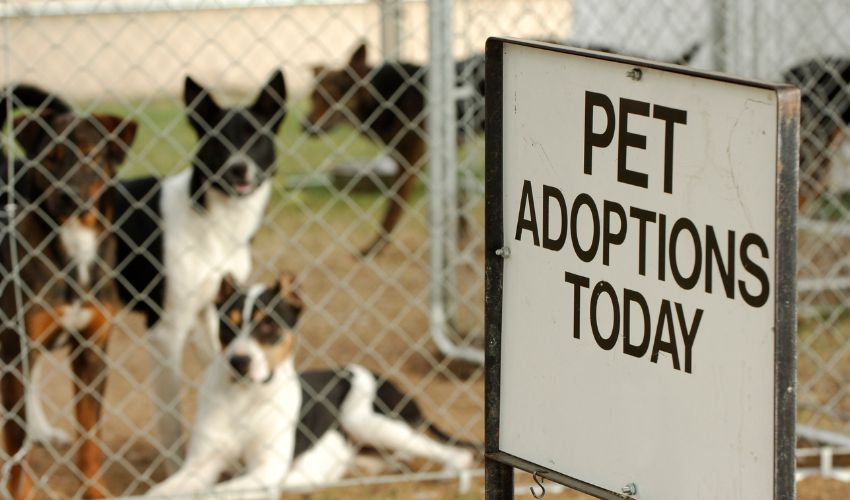The numbers alone speak for themselves:
- 173 million feline and canine fur babies share their homes with 81 U.S. million households. This accounts for ⅔ of the U.S. population;
- 5.4 million cats and dogs entered U.S. shelters in 2019. But, only 79% of them were saved, while 625,000 were killed;
- More than 50% of all cats and dogs killed in the U.S. are in California, Texas, North Carolina, Florida, and Louisiana;
- Only 2,126—or 44%—of shelters meet the benchmark for the no-kill philosophy; and
- Euthanasia, housing concerns, financial problems, and a caretaker’s or family member’s health or death are the usual reasons for pet surrender.
Evidently, there’s still plenty to be said when it comes to ensuring the welfare of animals.
Fortunately, professionals like Andrew Knight are lending a hand towards this noble cause.
Prof. Andrew Knight and the Centre for Animal Welfare
A vet professor of animal welfare, Andrew leads the Centre for Animal Welfare at the University of Winchester, a well-established public research university in the city of Winchester, Hampshire, England.
The Centre for Animal Welfare is an interdisciplinary center that undertakes animal welfare research, teaching, and public engagement.

Clearly taking pride in what the Centre has achieved so far, Andrew stated,
“We have a distance-learning Masters’ program in animal welfare, science, ethics, and law, which is kind of like a small factory for highly skilled and qualified animal advocates. We churn out about 30 graduates out of that program each year. Most of them want to go on and have professional careers in animal advocacy themselves.”
Andrew himself does a lot of his own advocacy, doing research and publications on animal welfare issues.
He continued,
“Just recently, we published some really exciting articles about educational animal use and humane alternatives to harming animals. Also, things like vet surgery training, working on vegan and alternate pet foods for cats and dogs. We also looked at the health outcomes of cats and dogs on these vegan diets and their environmental benefits. So, we’re looking at a range of aspects there and other subjects.”
As a professional with a doctorate in animal welfare, Andrew works with various animal advocacy groups.
Their activities usually entail Andrew and other like-minded individuals actively sending letters to the government about the steps that need to be taken against terrible acts of cruelty inflicted against animals, among other things, and publishing reports on a range of different relevant issues.
Andrew reminisced,
“I’m from Perth, Western Australia, which was the world capital of the live sheep export trade. I became involved in helping to launch the Australian campaign against the live sheep trade back at that time. And I thought this was amazing. I’m making a difference to millions of sentient animals, which is great.”
As fate would have it, Andrew’s involvement in the Australian campaign against the live sheep trade secured him various invitations.
But even with the facts and figures he presented in radio interviews, people only took his words with a grain of salt as soon as they learned that he was a pizza delivery driver.
This led him to consider becoming a veterinary, which eventually changed his life.
“I got rapidly drawn sideways to learn ve medicine and surgery without killing animals. I also ended up having to fight another massive campaign, which ended up being ultimately successful. We got rid of harmful animal usage and replaced it with human alternatives. And it spread to other veterinary schools,”
he noted.
After graduation, Andrew ended up working in a small animal practice as a local vet. Over the years, this gave him the time to keep doing research and publishing.
And eventually, he worked with organizations looking at animal research.
He, later on, discovered that the activities he’d engaged in can actually get him a Ph.D. The only thing he needed was to do enough publications and provide plenty of research outputs.
The rest was, as they say, history.
“I suddenly had a goal… I just kept on working in animal advocacy, producing more and more research and publications and presentations on various topics. And I ended up becoming a professor of animal welfare and ethics and asked to set up a Centre for Animal Welfare at the University of Winchester.”
The appointment initially presented a lot of challenges. Unlike other universities, Andrew and his small team of two had no animals they can call their own at the university.
Apart from that, no one knew who they were, they hardly had enough staff, and they basically selected to try a new virtual learning platform that was yet unheard of at the time.
Today, however, all these issues have become a thing of the past. The graduate program in Animal Welfare, Science, Ethics, and Law that Andrew helped set up and cultivate has grown to become one of the biggest programs at the University.
“It’s entirely distance-learning, so people can do that from anywhere in the world. We have students in the US, Australia, all across Europe, everywhere in the world, actually doing this program. And now, we’re, I think, one of the top programs in the world in its area. So, that was another kind of a lucky outcome.”
According to Andrew, their studentry consists of interesting individuals who aren’t just keen on helping animals but also want to make the world a better place.
To supplement the already-interesting backgrounds of their population, the Centre for Animal Welfare implements a wide range of activities for its students in the Master’s program.
This way, Andrew and his team see to it that their graduates develop the qualifications they need to advance their careers.
“We think it’s not enough for them to be able to become experts on animal welfare issues and to be able to write good academic essays. Those employing animal welfare organizations…value people being able to communicate well in an engaging way to the general public and to different stakeholder groups, whether they be scientific audiences, legislators, or companies… So, it’s exciting that this is happening as a side effect of the Master’s program. The Internet’s propagating with this wonderful set of in warfare resources every year.”
Interested to learn more about the Centre for Animal Welfare?
Check out Andrew Knight’s website at https://www.andrewknight.info/.
Explore animal welfare courses at https://www.winchester.ac.uk/research/our-impactful-research/research-and-knowledge-exchange-in-health-and-wellbeing-/research-centres/caw/.














